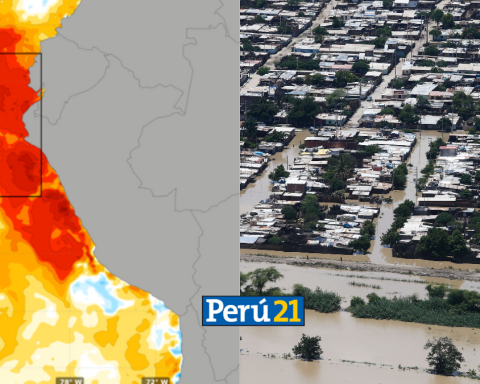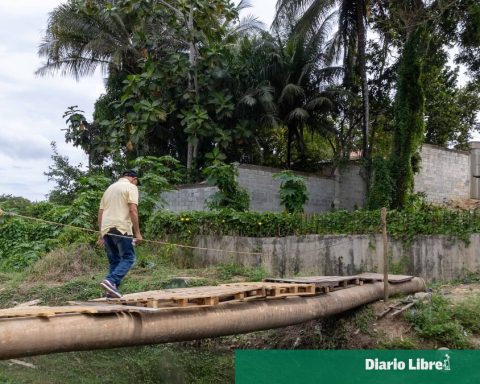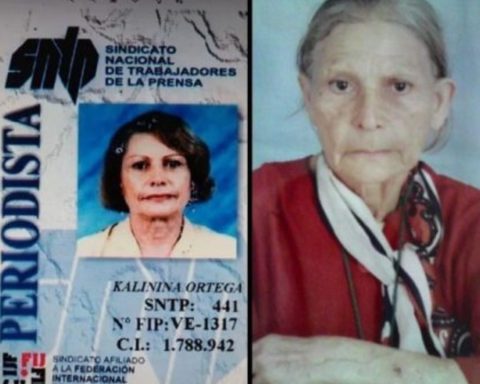In August 2021, the three senators of the Cabildo Abierto presented a bill to enshrine that those prosecuted or convicted over 65 years of age would serve mandatory prison terms in their homes. It was an initiative that in those months generated intense political dust, because, if it prospered, it would end up directly benefiting the ex-military and police officers whom the Justice classified as responsible for crimes related to State terrorism.
The project was at the forefront of parliamentary discussion until the end of last year. Since then it has lost steam. The last mention of the issue in the Constitution and Codes Commission of the Senate (where the text is) was on April 26. That day a note arrived from Foreign Minister Francisco Bustillo showing the position of the Ministry of Foreign Affairs on the project.
With Accountability dominating the agenda and with other important issues (such as the upcoming entry of the pension reform bill) the initiative of the lobbyists appears buried and is no longer even part of the list of legislative priorities of the ruling party.
Those led by Guido Manini Rios they aspire to obtain, before the end of the year, a definition. Either for or against. In any case, they admit that even that will be very difficult. “We want to solve this problem now, but in politics, anxiety is a bad adviser,” he told The Observer Senator Guillermo Domenech. Beyond the fact that it is a priority for them, the legislator explained that his training “cannot precipitate a definition of the rest of the coalition in that sense. “It is very difficult”, express.
A proposal from the National Party (which sought to iron out the most controversial edges of the project) has not yet gone beyond a draft. So he told The Observer Senator Carmen Asiaín, who remarked that, despite everything, not even this draft project is a priority. “At least not at the parliamentary level,” she maintained.
The text of the whites would grant house arrest as an alternative mode of serving the sentence to adults over 70 years of age; adults over the age of 65 who have serious health problems or disabilities; pregnant women with health problems; mothers who have dependent children under five years of age; and mothers who have children between five and ten years of age with health problems or serious disabilities. Asiaín explained that the reason for this alternative is to prevent children from going to the INAU – once separated from their mothers – to pay for crimes they did not commit.
In all cases, the report of medical experts would be required to justify that the person cannot serve the sentence under prison conditions, and it will be the decision of the judge to grant this benefit or not. The resource would not be applicable in cases of convictions for sexual crimes, domestic violence, drug trafficking or crimes against humanity.
“Almost total impunity”
To all this, the United Nations Organization (UN) once again expressed its concern about the eventual approval of a bill that would grant house arrest for people over 65 years of age. The body warned that, if enacted, “a good part, if not all” of those accused of various actions of State terrorism and crimes against humanity “They would remain in a situation of almost total impunity.”
The warning was part of the recommendations and final observations that the international organization made on Tuesday to Uruguay in Geneva, in which it presented the results of the review that its Committee on Enforced Disappearances carried out on the country.
This is a new warning from the body. In November of last year he had pointed out in a letter to the Foreign Ministry the consequences of the approval of a law of this type which, he stated, would be “contrary to international law”would violate various conventions signed by Uruguay and would end up benefiting a group of those responsible for crimes against humanity.
The nationalist “draft”, it is anticipated, will also be a source of discussion. consulted by The Observer, Domenech announced that his formation disagrees in some aspects, but he avoided expressing them. An early pronouncement, he pointed out, will surely complicate the negotiation. “Sometimes the best is the enemy of the good”, he limited himself to expressing.
Domenech took the opportunity to question the new UN pronouncement. “House arrest does not constitute an amnesty or a pardon,” he affirmed, going on to criticize the “lightness” with which some international organizations express their opinion. The lobbying senator in turn returned to a premise long held by his party: it is “debatable” whether those who were prosecuted or convicted of crimes against humanity were correctly.
The position of Cabildo Abierto is that it is a crime that did not exist at the time of committing the facts of reference, which contravenes any principle of criminal law.

















